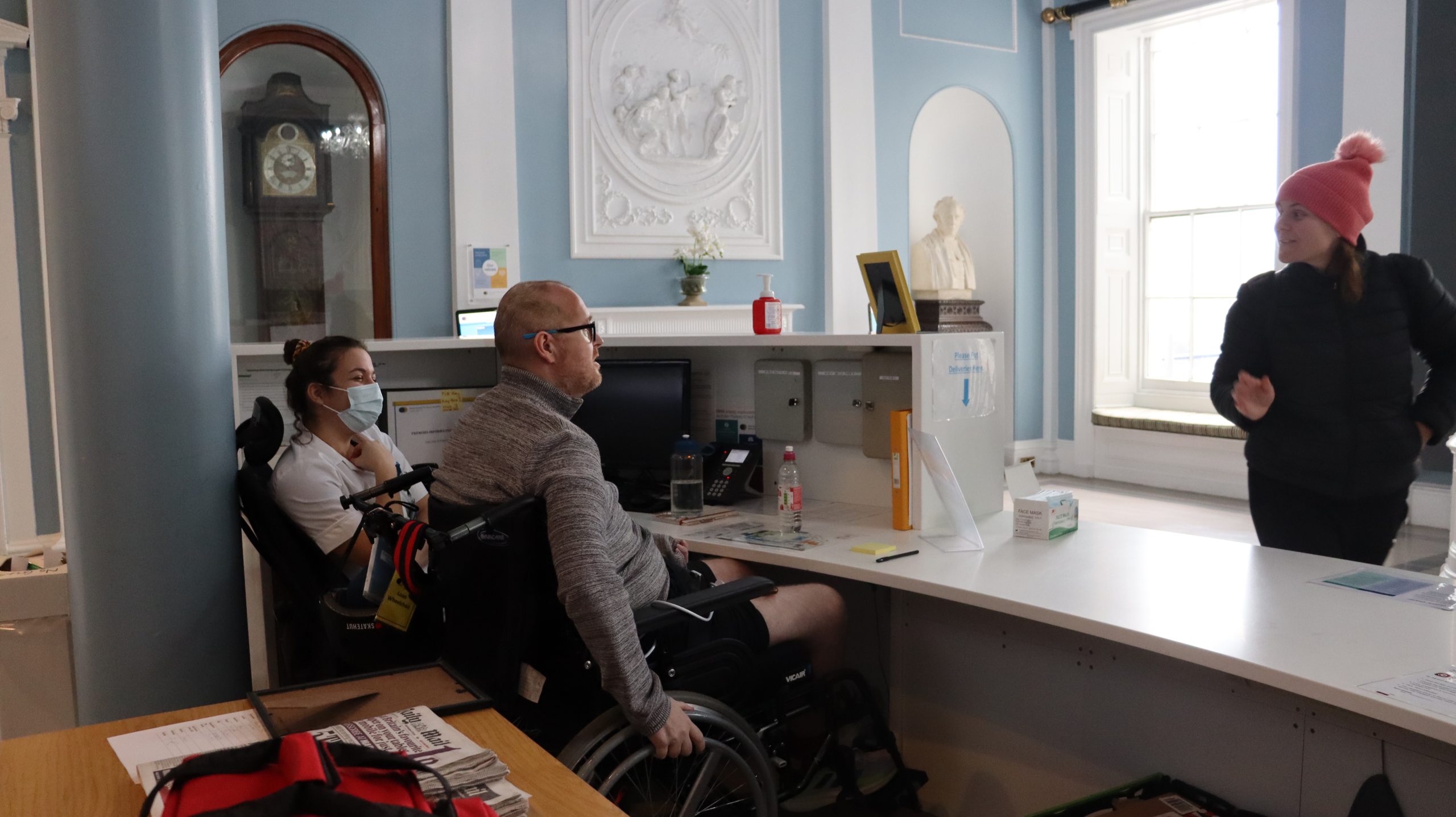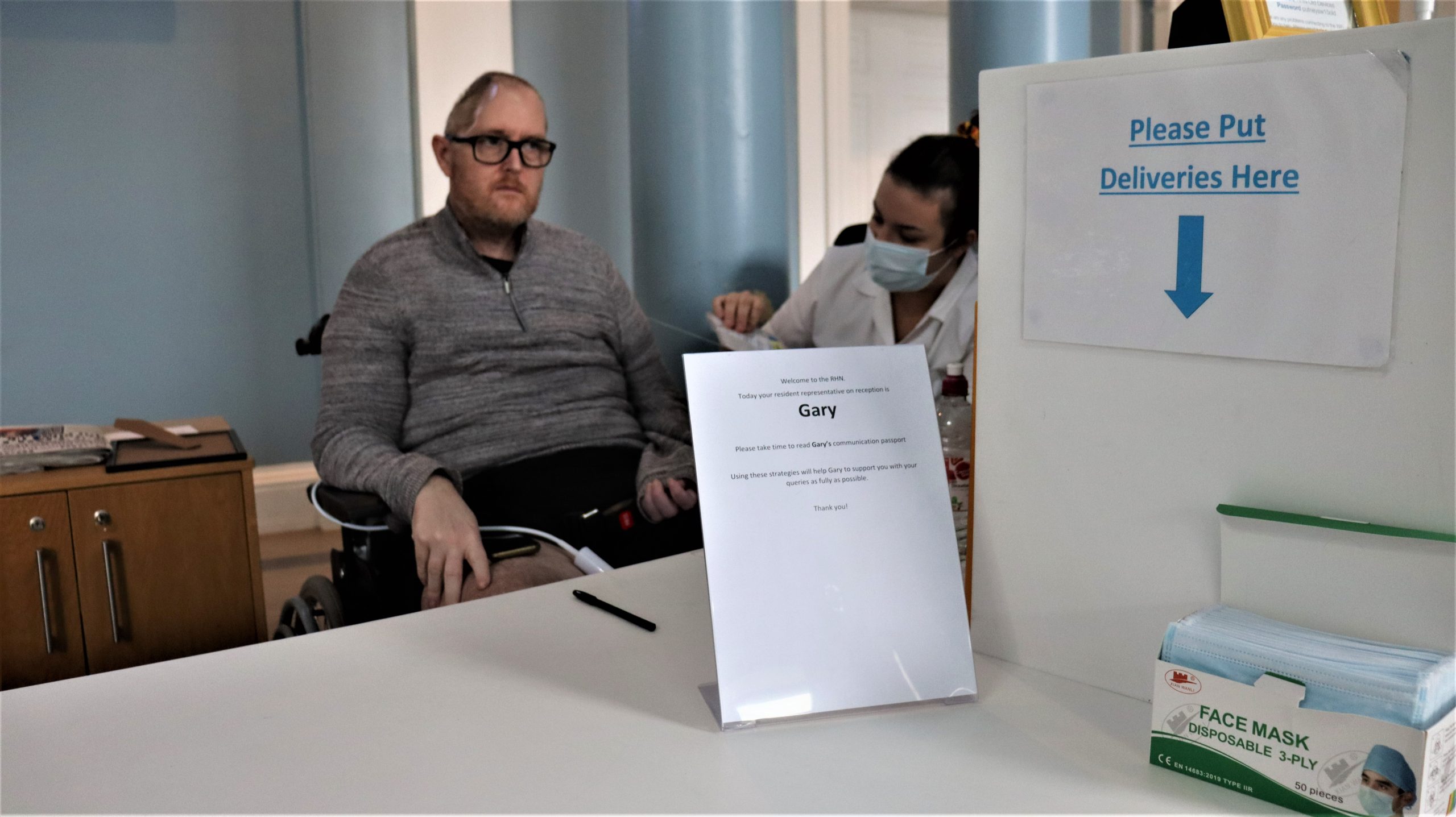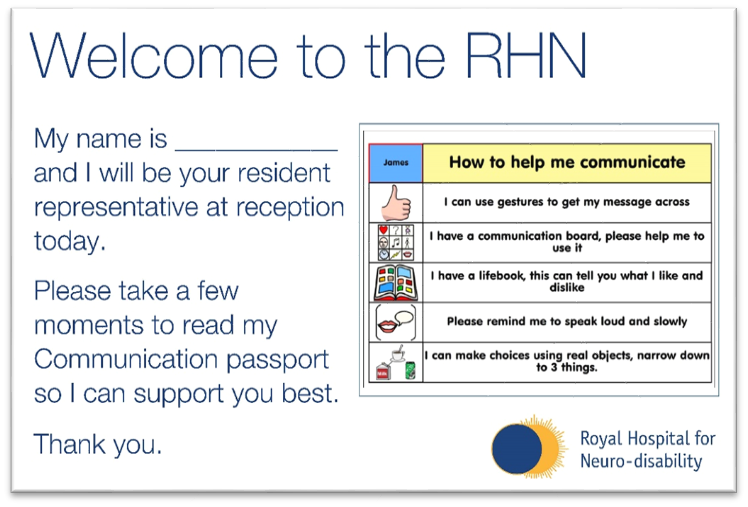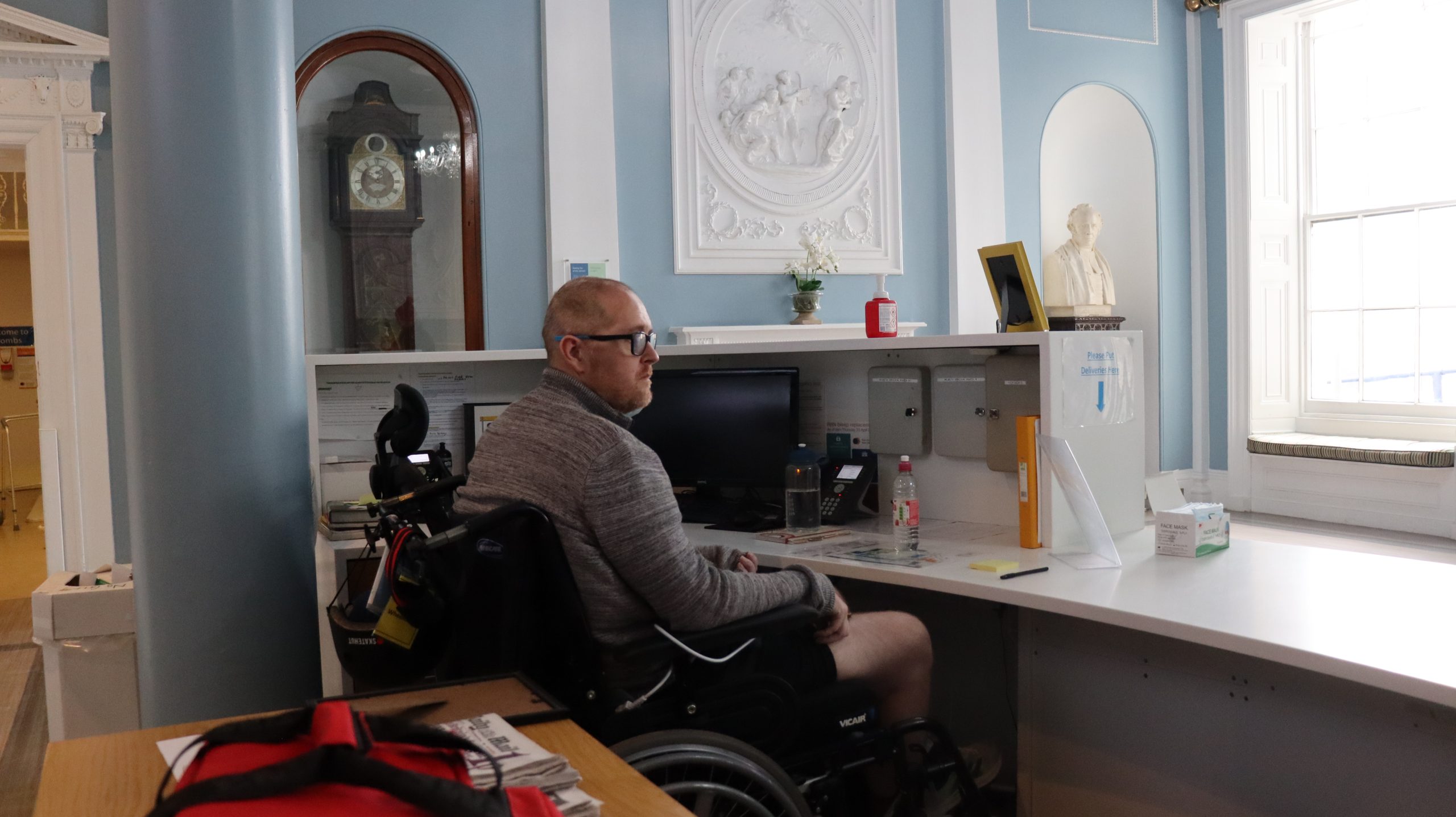RHN patients take over reception
RHN patients take over reception

The Royal Hospital for Neuro-disability is always open to welcoming volunteers, and our patients and residents are no exception.
A recent project introduced by speech and language therapists and occupational therapists as part of a pilot scheme encourages patients and residents to interact with staff and visitors outside of a clinical setting. With support from the RHN’s Allied Health Professionals (AHPs), including speech and language therapists and occupational therapists, patients and residents are given the opportunity to work at the hospital’s reception desk.
The experience gives patients and residents the chance to practice their communication as part of their rehabilitation, rebuilding confidence and skills that may have been impacted following brain injury. Many of the ways patients receive therapy involves applying what they have been working on in non-clinical settings with people outside of their care team.

Recently admitted Drapers Ward patient, Gary, spent an hour at reception greeting visitors and staff, helping them with sign in and pointing them towards sanitising stations. He was also able to take in and return keys from relatives staying in visitor’s accommodation, with little help from his supporting therapist. Gary’s communication passport was on the desk in front of him to help himself and others achieve the most effective communication.
Every patient and resident at the RHN has their own individual communication passport summarising how they are best able to communicate. Many patients and residents at the RHN are non-verbal or have difficulties with speaking, meaning that many use some form of Augmentative and Alternative Communication (AAC) to assist them in communicating their needs to staff and conversing with family and friends.

“I aspire to be like Teresa and Trudi”
Gary is not the first patient to take on a role at reception. Teresa and Trudi are both former patients at the RHN who, following their discharge, both began volunteering at the hospital, eventually joining the RHN’s reception team as members of staff.
Many more patients and residents are lined up to have weekly experience working on reception as part of the pilot scheme, with the hopes that it will further assist them in their rehabilitation journey, build their confidence and allow them to practice their communication in a real-life setting.
Having made remarkable progress in regaining his speech and cognitive memory following his injury, Gary is hopeful that he will be able to follow in the footsteps of Teresa and Trudi, be discharged from hospital and return to Stamford Bridge to watch his beloved football team, Chelsea FC.
